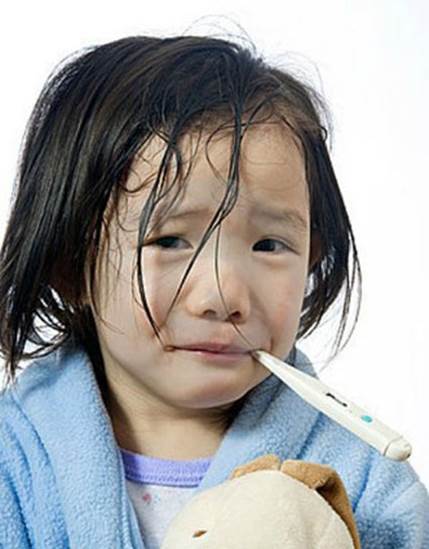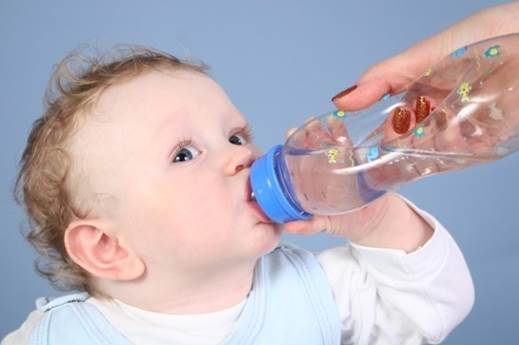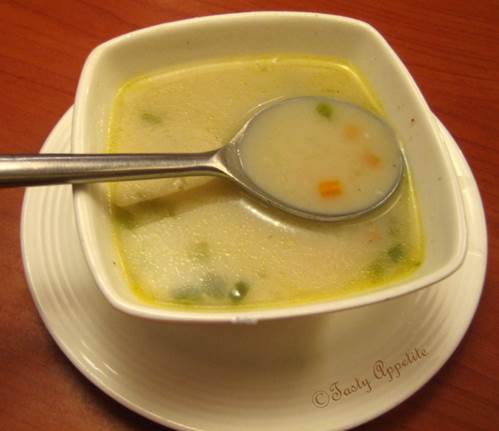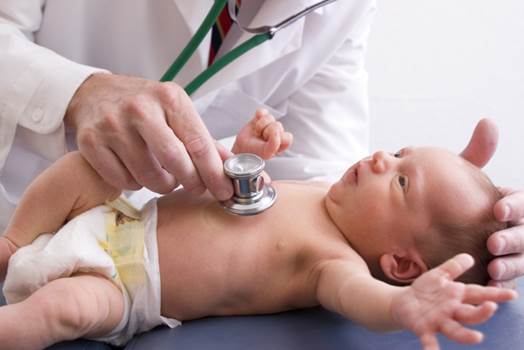Breathing mint air can stimulate the blood
vessels so that they will expand and create a way for the air to get in and
help children be able to breath easily in stuffy-nose days.
Moms can burn the mint oil in baby’s room
to create a gentle smell. However, you should observe children to know whether
the smell is strong to babies or not and stop using mint oil when children
start having worse wheezing.

Flu
makes children uncomfortable.
Provide children with water (treat stuffy noses or
dehydration)
Increasing the quantity of liquid, breast
milk productions, formula milk, fresh cow milk, water and soup is necessary in order
to have good resistances to virus as well as prevent infections.
How much water that should be provided to a
baby? It’s recommended that children should drink an amount of water that is
twice as much as usual. To children receiving breastfeeding, moms should let
them drink more water and don’t be afraid letting them drink even more water if
they want to. For children that are fed with formula milk, moms should let them
drink water between meals.

It’s
recommended that children should drink an amount of water that is twice as much
as usual.
When children are sick, they eat more
slowly and find it difficult to suck for milk as their noses are stuffy. To
support babies, before feeding them, clear their noses or do nose suction to
them. You should pay special attention on those days; milk is an essential food
source that not only provides calories, proteins, fats, vitamins and minerals,
it also provides necessary the essential supply of liquid for children’s
bodies.
Use Acetaminophen (Treat fever and pains)
Is using acetaminophen safe to kids? While
other cough medicines and cold medical treatments should be limited using for
children, pediatricians still recommend parents to use acetaminophen to ease
children fever. Acetaminophen also helps ease the normal pains and pains caused
the cold, stuffy nose and flu.
Ways to use acetaminophen: It’s not only
that you should follow the instructions of the drug, but also ask for doctor’s
recommendations about doses and conditions. If babies still have fever signs
after taking medicines, take them to a doctor to limit complications.
Eat chicken soup (supporting treatment of stuffy nose,
sore throat and coma)
Can eating chicken soup really bring
effects? Chicken soup is a folk remedy for ordinary cold in children. Some researches
show that soups can help reduce cold symptoms.

Chicken
soup is a folk remedy for treating ordinary cold in children.
Moms should take notice of the fact that
they should only let babies that are able to eat the soup and the soup should
be cooked and appropriate to the children ages. Generally, moms should crush
the chicken soup well, add vegetables and feed the soup when it’s still warm.
If babies don’t like the soup, you should let them try some Chamomile tea or
mint tea.
Create good moods for babies
When taking care of children, especially
when they’re sick, you should pat and comfort them so that they will feel loved
and cared. Specialists agree that the positive care from parents will distract
the effects of the sickness. Parents should create a comfortable environment as
much as possible in order to help babies feel relaxed. Try to fondle and read
stories to children to help them go to sleep more easily. You should let them
sleep near your bed to have more convenience in taking care of them at night.
You can skip some daily rile and let them watch their favorite cartoon or
programs. That’ll make they relaxed and get healthier.
If your job doesn’t allow you to stay at
home and take care of your children in those kinds of days, you can ask for
special helps from grandparents to have babies got better soon.
When should children see a doctor?

Taking
them to a doctor is necessary and can happen anytime you feel worried about
children’s health conditions.
Taking them to a doctor is necessary and
can happen anytime you feel worried about children’s health conditions but, you
should pay extra care on signs telling that your children definitely need to
see a doctor:
·
Long-day snivel and sore throat
·
Ear pain
·
Vomiting or diarrhea
·
Cough loudly
·
High fever and having no improvement in the
temperature after taking antipyretics
·
Children seem to be tired and would like to lay
down
·
Shortness of breath